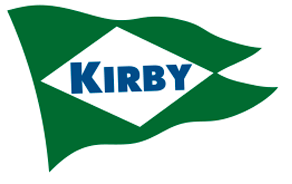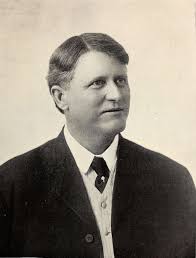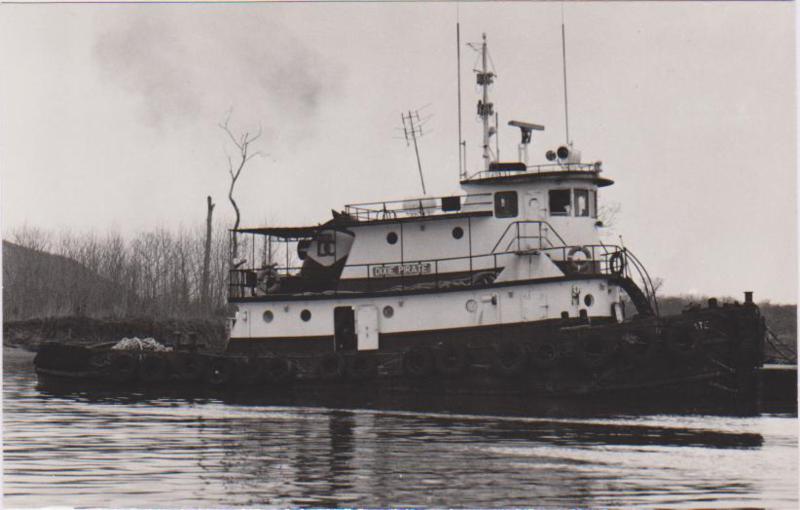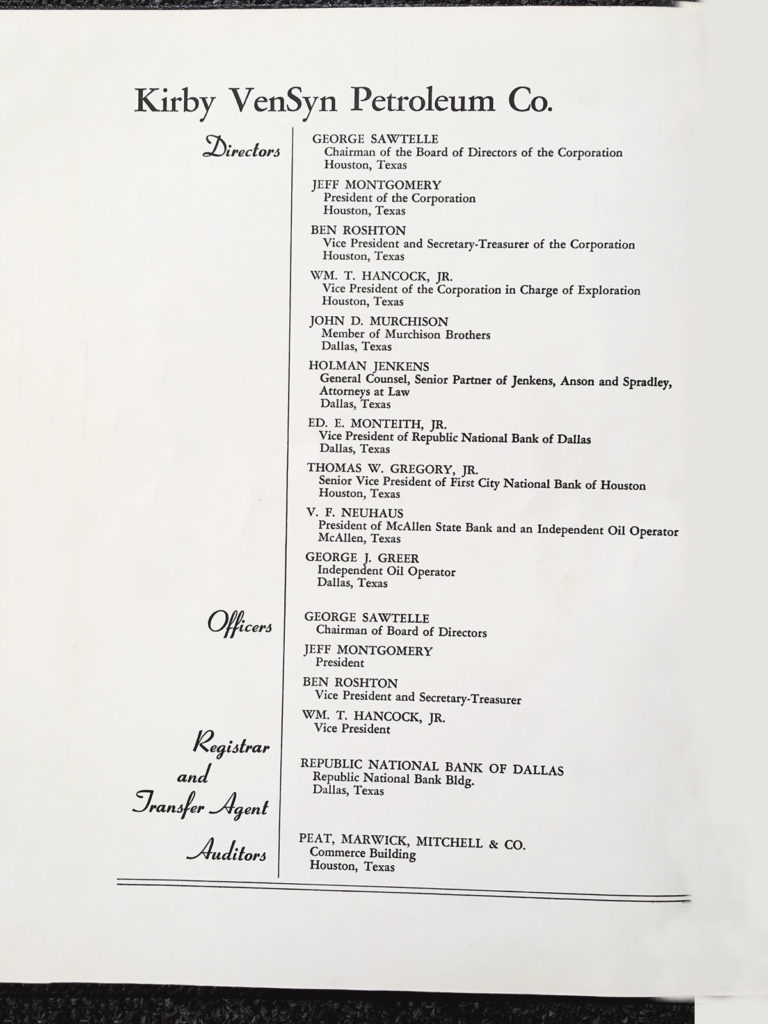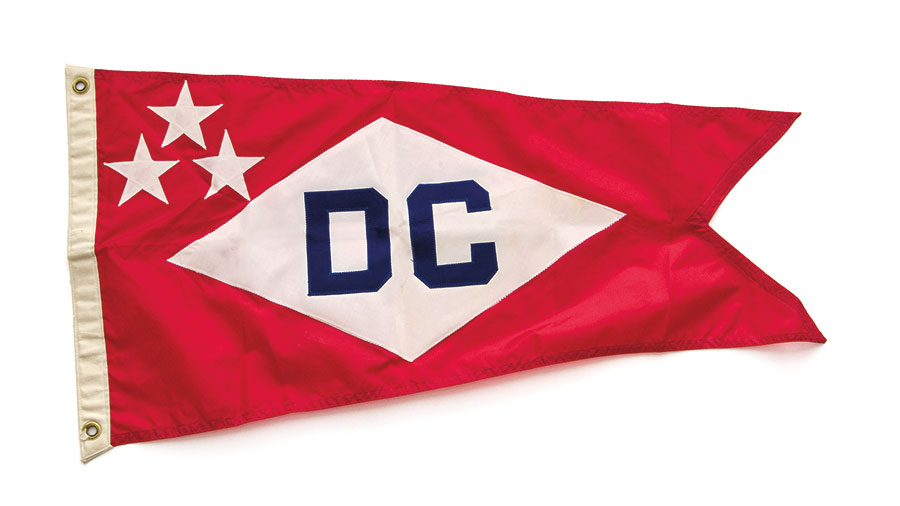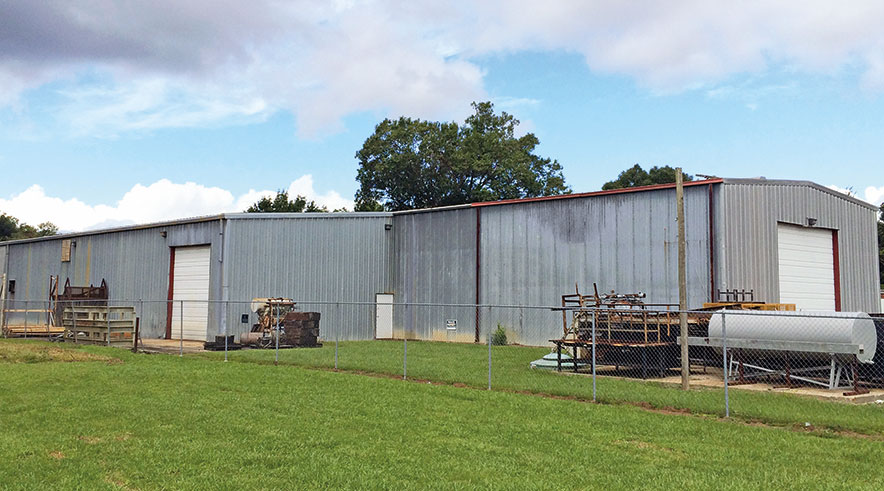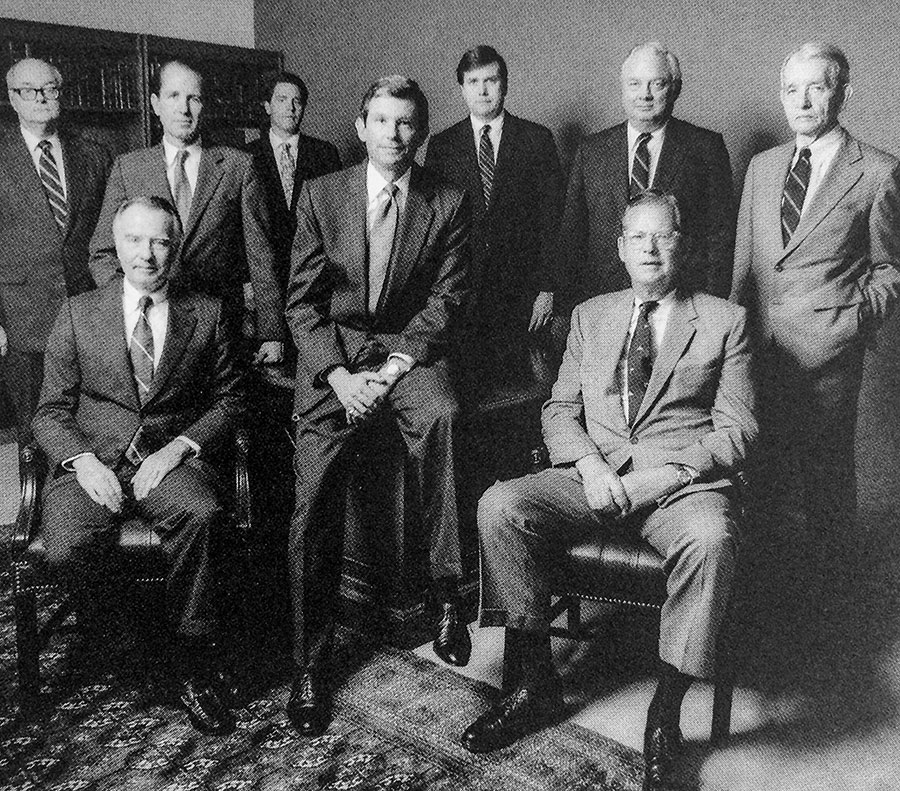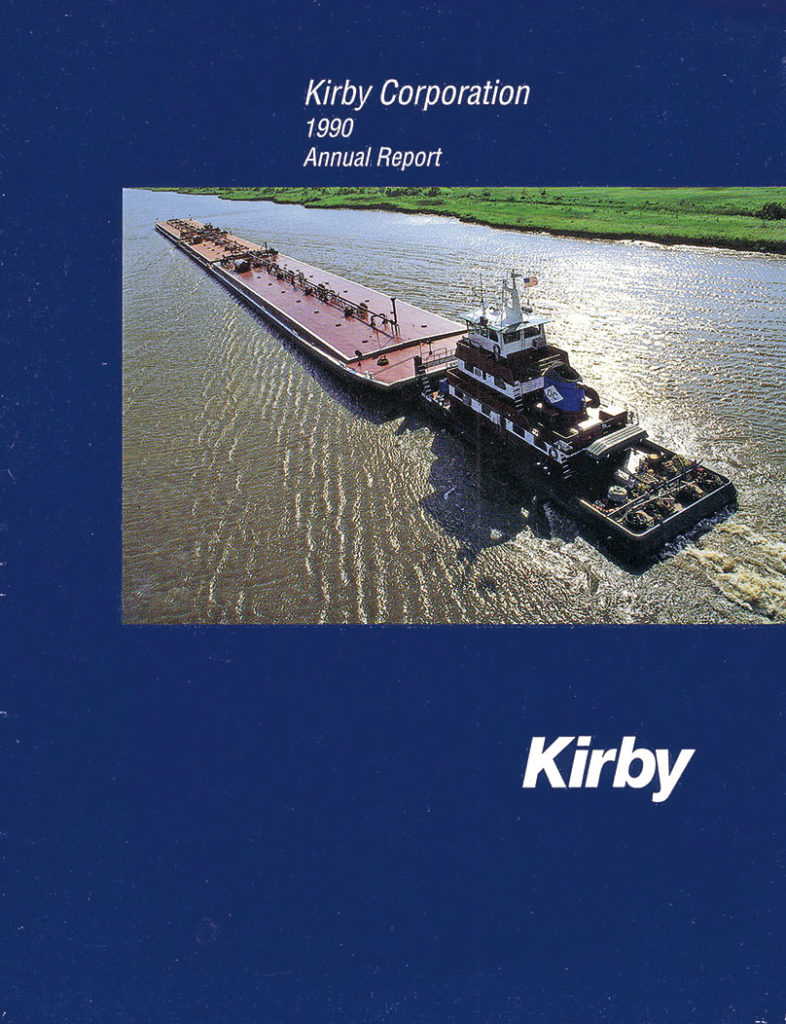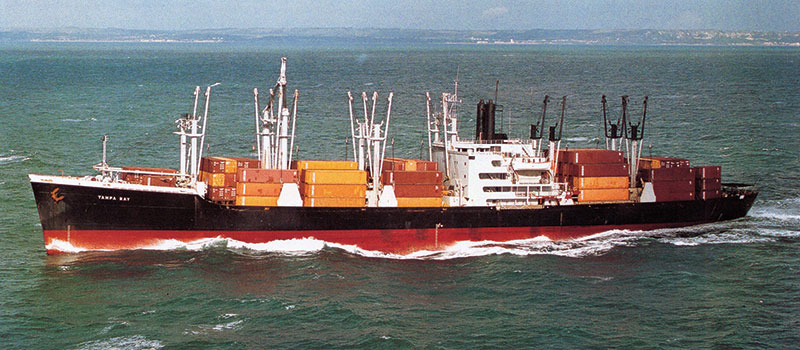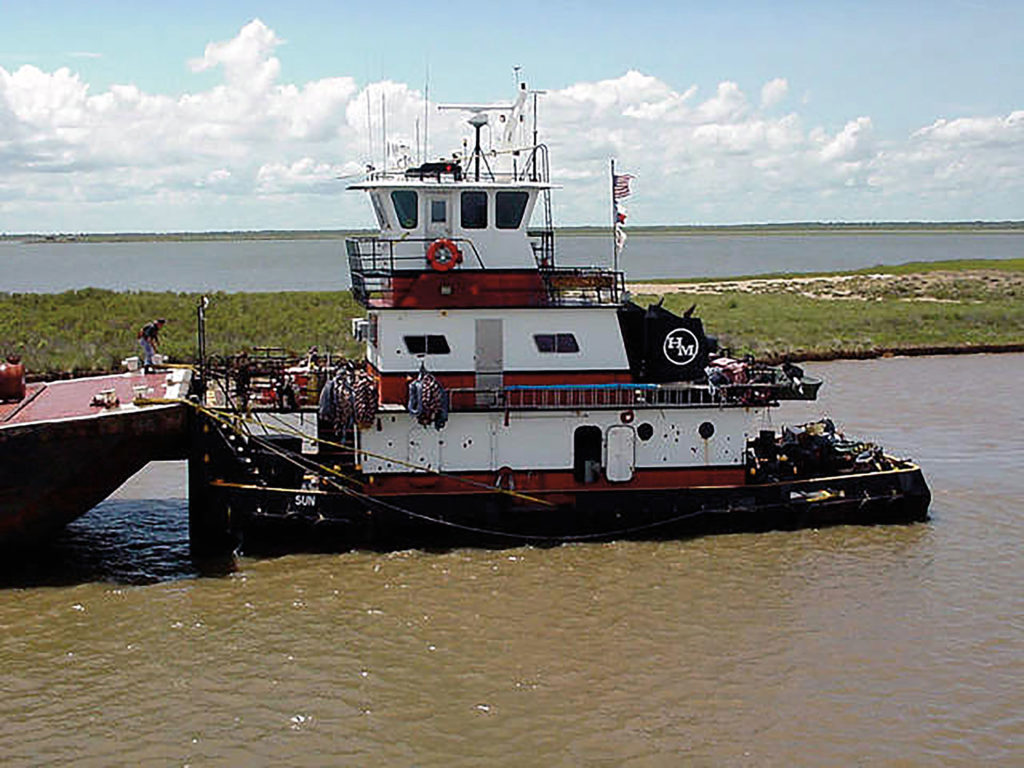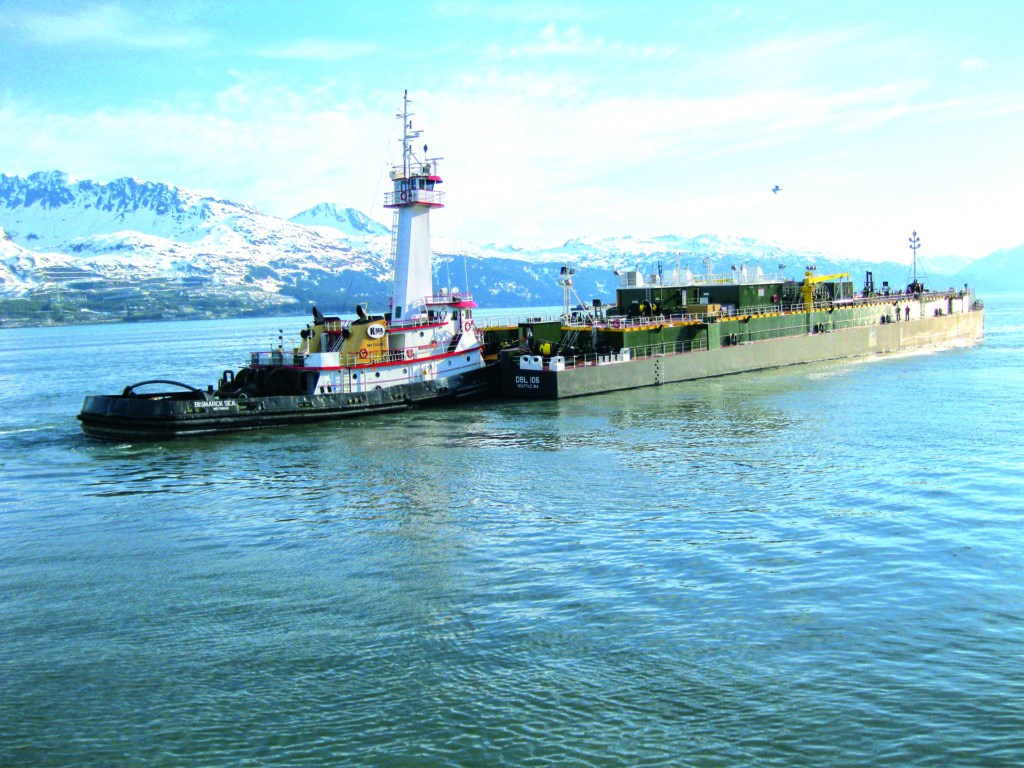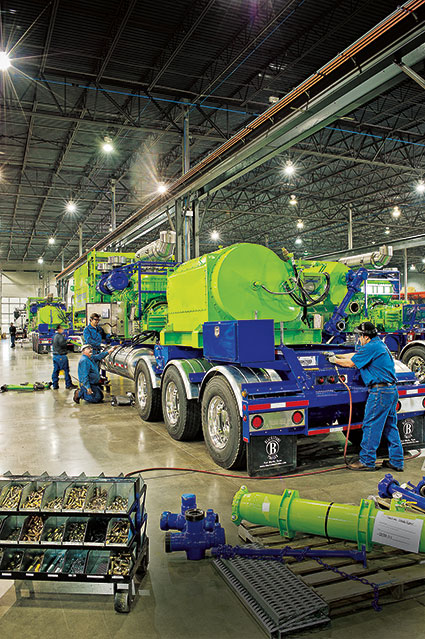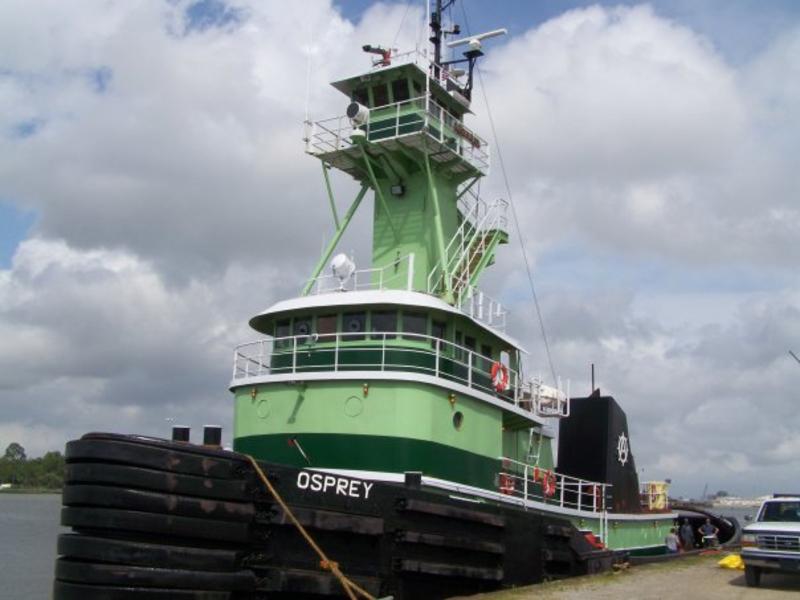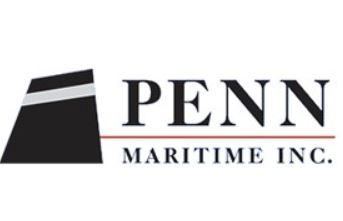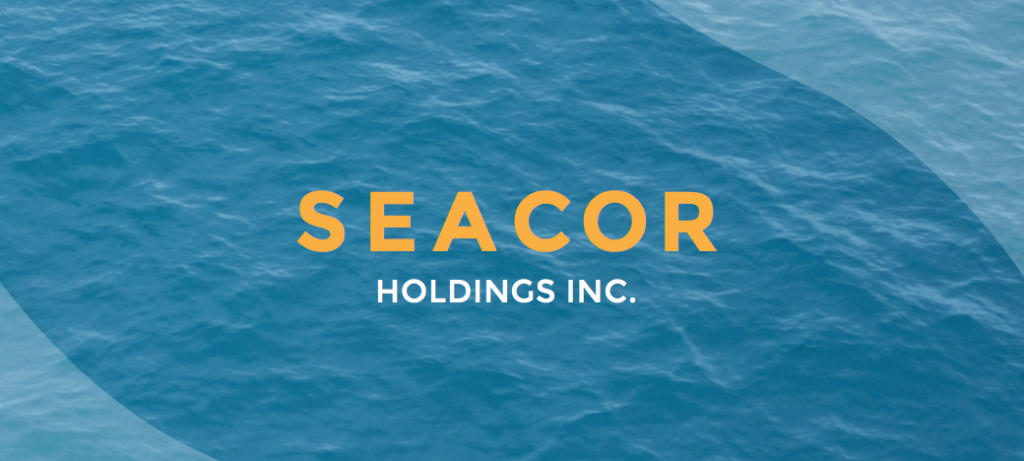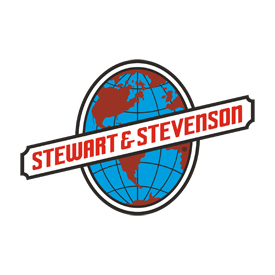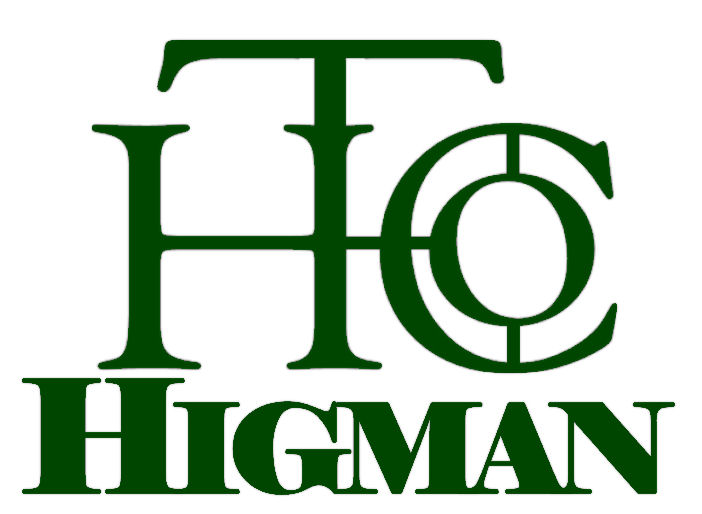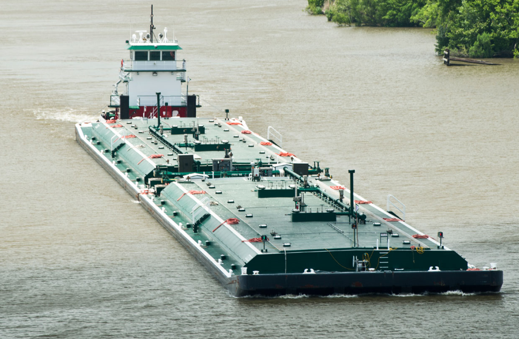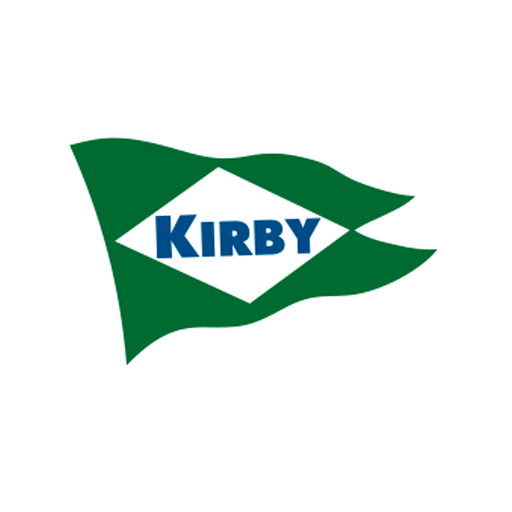History
The history of Kirby can be traced back to 1921
The history of Kirby can be traced back to 1921 when John Henry Kirby, a pioneer in the development of the Houston business community, formed Kirby Petroleum Company, an independent oil and gas exploration and development company. Kirby’s stock first publicly traded in 1956 following a merger with Kirby VenSyn Petroleum Co.



Kirby entered the marine transportation business in 1969 with the acquisition of Dixie Carriers, Inc. In the 1970’s, following a major business restructuring, Dixie Carriers, along with a number of oil and gas interests and other assets, became part of Kirby Exploration Company which began publicly trading in 1976 under the ticker “KEX”. In 1987, the Board of Directors adopted a strategy to focus on the core marine transportation and diesel engine services businesses, following through the next year with the sale of the oil and gas assets. The name of the company was changed to Kirby Corporation in 1990.
Today, Kirby Corporation operates the nation’s largest domestic tank barge operator transporting bulk liquid products throughout the Mississippi River System on the Gulf Intracoastal Waterway, along all three U.S. coasts, and in Alaska and Hawaii.
Kirby transports petrochemicals, black oil, refined petroleum products and agricultural chemicals by tank barge for a blue chip list of customers. In the distribution and services segment, Kirby operates the largest marine diesel engine service and repair company in the country and also services engines in the industrial, power generation and land-based, or oilfield services, industries.
Kirby and its marine transportation and distribution and services segments have approximately 5,800 employees. Kirby’s common stock is listed on the New York Stock Exchange trading under the symbol “KEX”.

